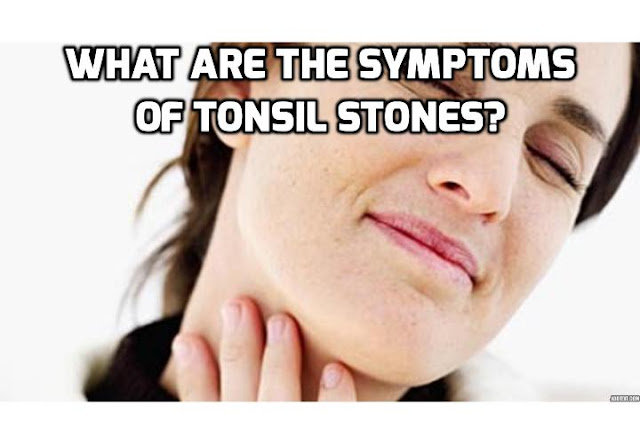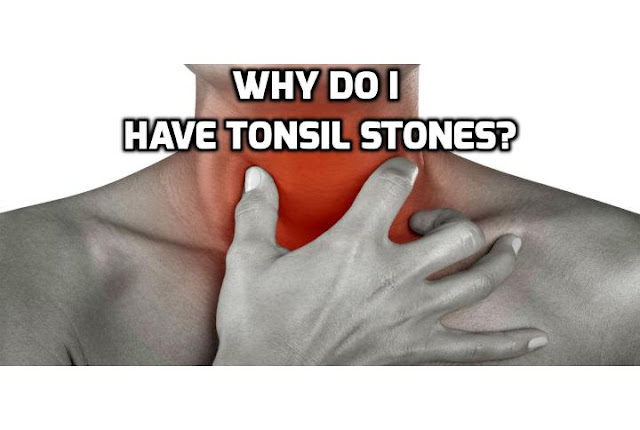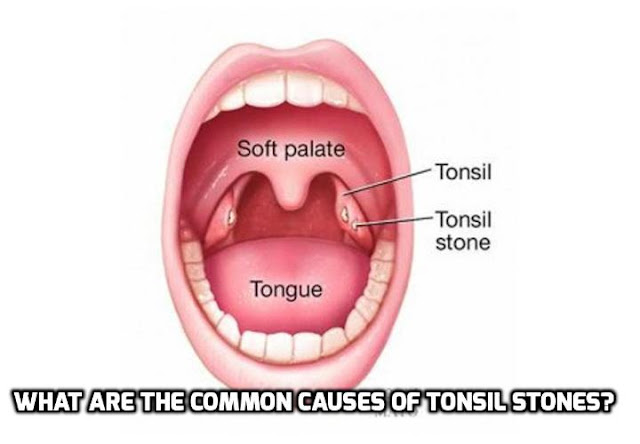 |
Although
most small tonsil stones do not lead to significant symptoms, individuals with larger tonsil stones can experience unpleasant symptoms.
The
symptoms of larger tonsil stones (also known as tonsilloliths) are varied, but usually include
bad breath, a sore throat, difficulty swallowing, earaches, swollen tonsils,
and visible white debris at the back of the throat.
Your
palatine tonsils resemble small, dimpled balls and are located on either side
of your tongue at the back of the throat. These structures are part of the
lymphatic system, functioning as front-line guards to defend the body against
foreign substances and pathogens. On its surface, each tonsil possesses small
crevices that are called the tonsillar crypts.
Sometimes,
food particles, mucus, microorganisms, and dead cells can accumulate in
these crypts. If this material remains lodged in the tonsillar crypts, it is
attacked by white blood cells and turns into hardened, pale lumps called tonsil stones or tonsillar calculi.
For
some patients, they may experience symptoms
of tonsil stones like persistent irritation, inflamed tonsils, a persistent sore
throat, and chronic bad breath.
Bad
breath is one of the primary symptoms of tonsil stones. Researchers estimate that approximately 75% of people with
abnormally unpleasant breath also suffered from tonsil stones.
In
these cases, the high levels of bacteria and other microorganisms within the
tonsil stones create bad breath, as these substances create pungent, lingering odors whenever
you exhale or speak.
Additionally,
some patients with tonsil stones also experience persistent sore throats. This is likely due to
inflammation in the tonsils or to the presence of a larger, hardened tonsil stone that has become firmly lodged in a tonsillar crypt.
A
persistent sore throat may also indicate a concurrent infection such as
tonsillitis as well. Depending on the size or location of your tonsil stones, you may also have difficulty swallowing.
Ear
aches is another one of the symptoms of tonsil stones. Although the tonsil stones are not touching the ear canal, you may still feel pain in your
inner ear because of shared nerve pathways in your throat and neck.
Finally,
some tonsil stones may be visible in the back of your throat as lumps of white
material. However, most tonsil stones are hidden within the tonsillar crypts and can only be detected
by a physician with the help of non-invasive scanning technology such as an
MRI.
This article is based
on the book, “Tonsil Stones Remedy Forever” by Alison White, an ex-sufferer of
tonsilloliths, also known as tonsil stones.
Tonsil Stones Remedy
Forever is a guidebook that teaches you everything you need to know to get rid
of painful, pesky and inconvenient tonsil stones without surgery.
This is a 7-day
schedule to get rid of tonsil stones using natural remedies that are tried,
tested and proven to work. If you are ready to take control of your health and
to make the right decision regarding your tonsil stones, then click on Tonsil Stones Remedy Forever.

